To grasp significant global trends and the opportunities and challenges they bring for Taiwan, the Foundation invites leading theorists, politicians, entrepreneurs, and social activists to give public lectures on these crucial issues.
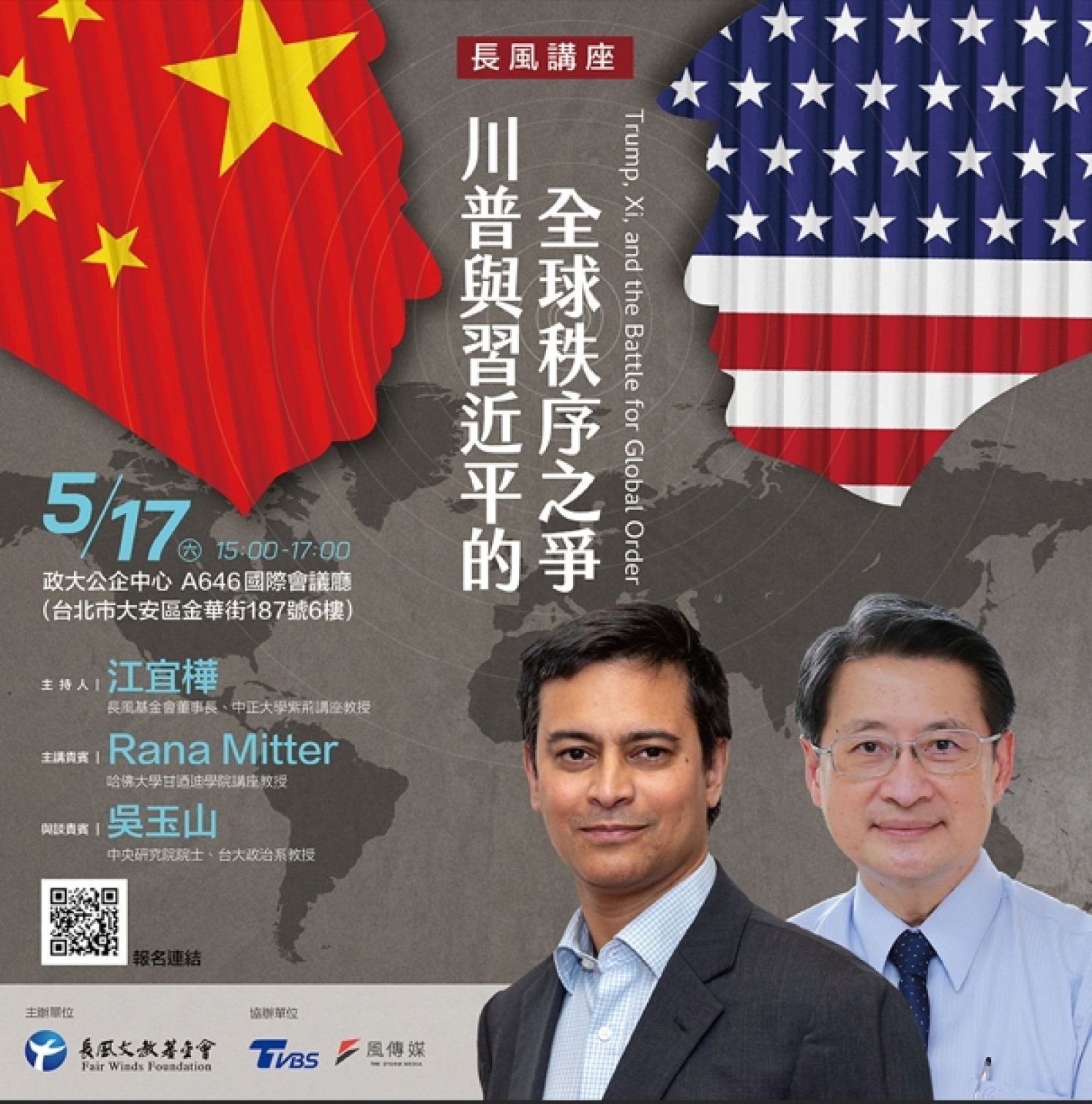
2025 Trump, Xi, and the Battle for Global Order
In 2025, President Donald Trump’s return to the White House marks the beginning of the “Trump 2.0 era.” His comeback has triggered significant controversy within the United States due to numerous domestic policy moves. Internationally, his revival of the “America First” doctrine and withdrawal from the Paris Climate Agreement have likewise fueled global unrest. Most notably, in U.S.-China relations, policies such as high tariffs and the export ban on tech products—which border on decoupling—have raised concerns about whether fierce confrontation between the world’s two major powers might lead to a breakdown in global stability.
Details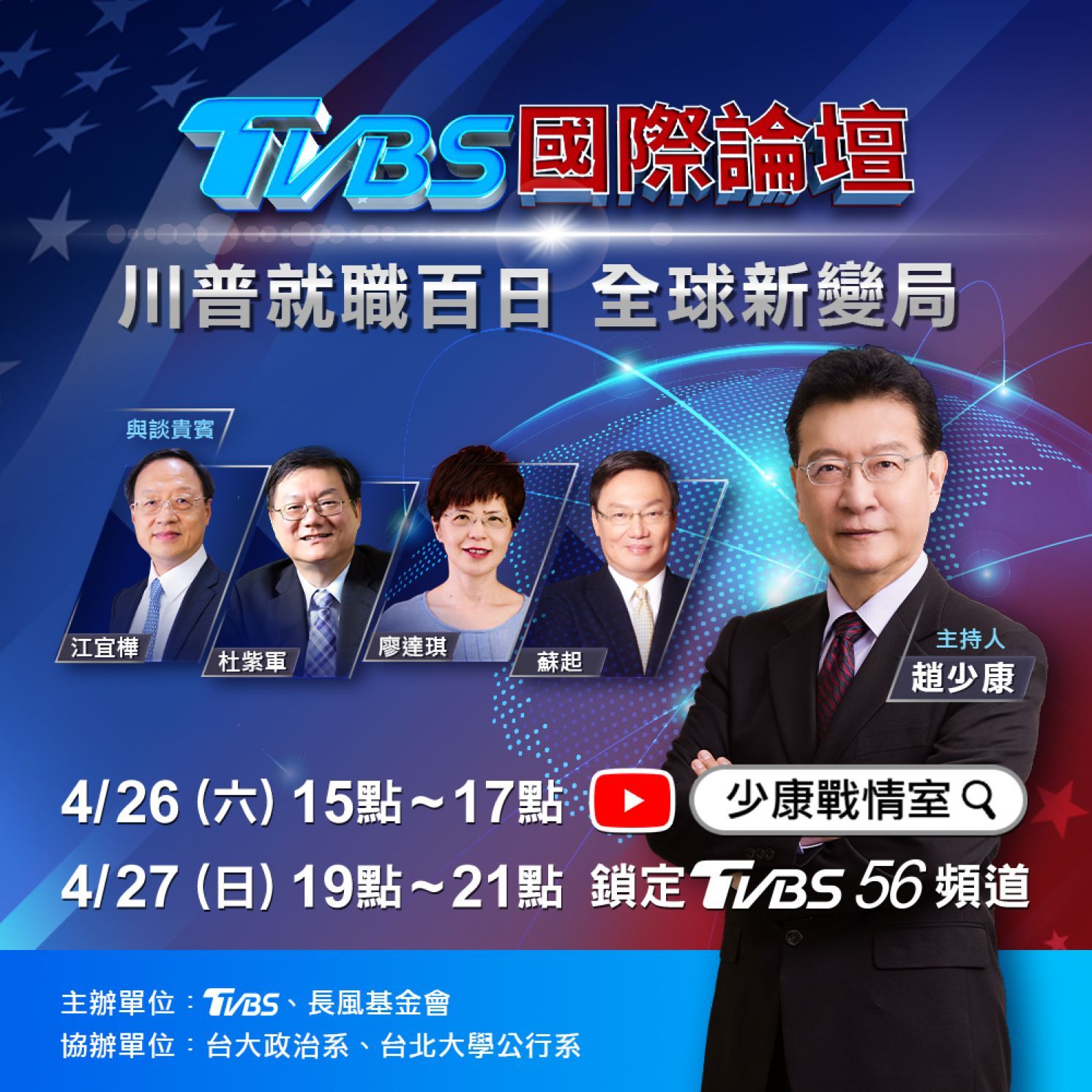
2025 TVBS International Forum: The World Order After Trump’s First 100 Days
In 2025, Donald Trump returned to the White House, marking the beginning of what’s being called the “Trump 2.0 era.” His leadership style has grown even more aggressive than during his first term. Domestically, he has slashed government agencies, demanded public servants declare loyalty, abolished diversity and inclusion policies, and curbed academic freedom at universities. Internationally, he has escalated tariff wars and declared—regardless of cost—his intent to reclaim the Panama Canal and annex Greenland and Canada, sparking shock across the United States and the world.
Details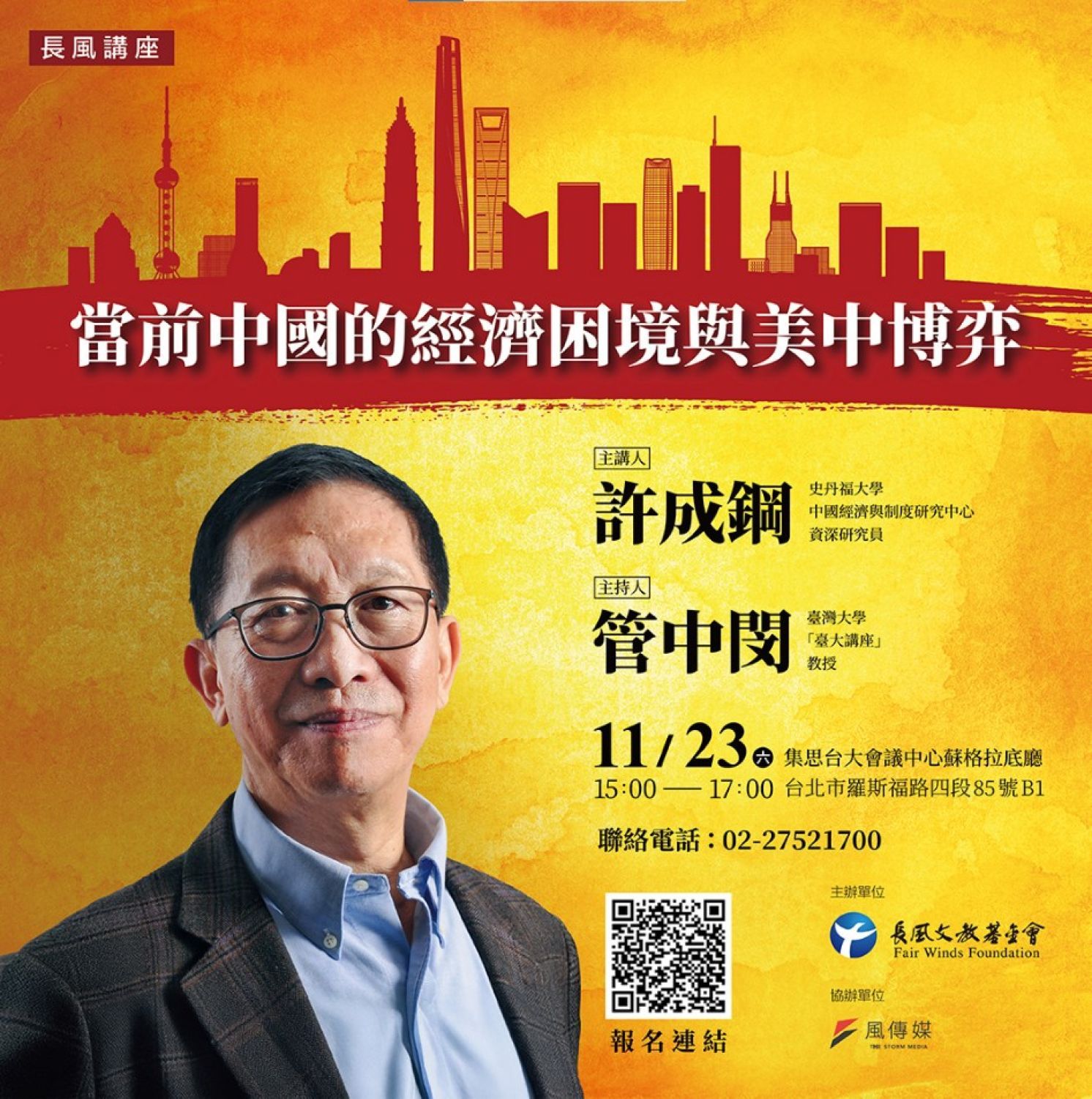
2024 China’s Current Economic Predicament and U.S.-China Strategic Competition
Following more than three decades of rapid growth, mainland China’s economy has recently undergone a major reversal, now facing one of its most severe crises in finance, economics, and public spending. Within the broader context of U.S.-China strategic rivalry—or what some refer to as a new Cold War—this development raises urgent questions: Is China retracing the collapse of the former Soviet Union? How will Taiwan’s security and economic trajectory be affected?
Details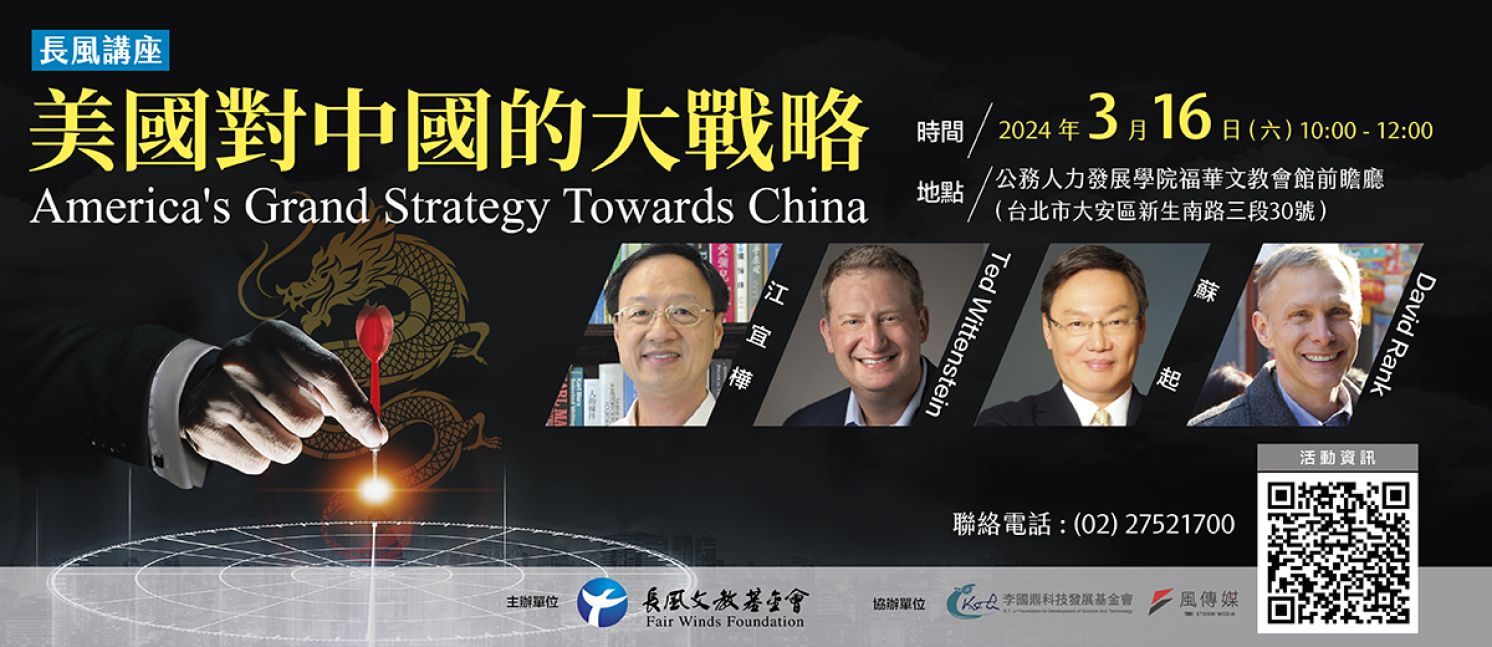
2024 America's Grand Strategy Towards China
Faced with China’s rising power, the United States has adopted a comprehensive containment strategy spanning trade, technology, military affairs, and diplomacy. Yet a critical question remains: Can this grand strategy succeed—and what impact might it have on cross-Strait relations?
Details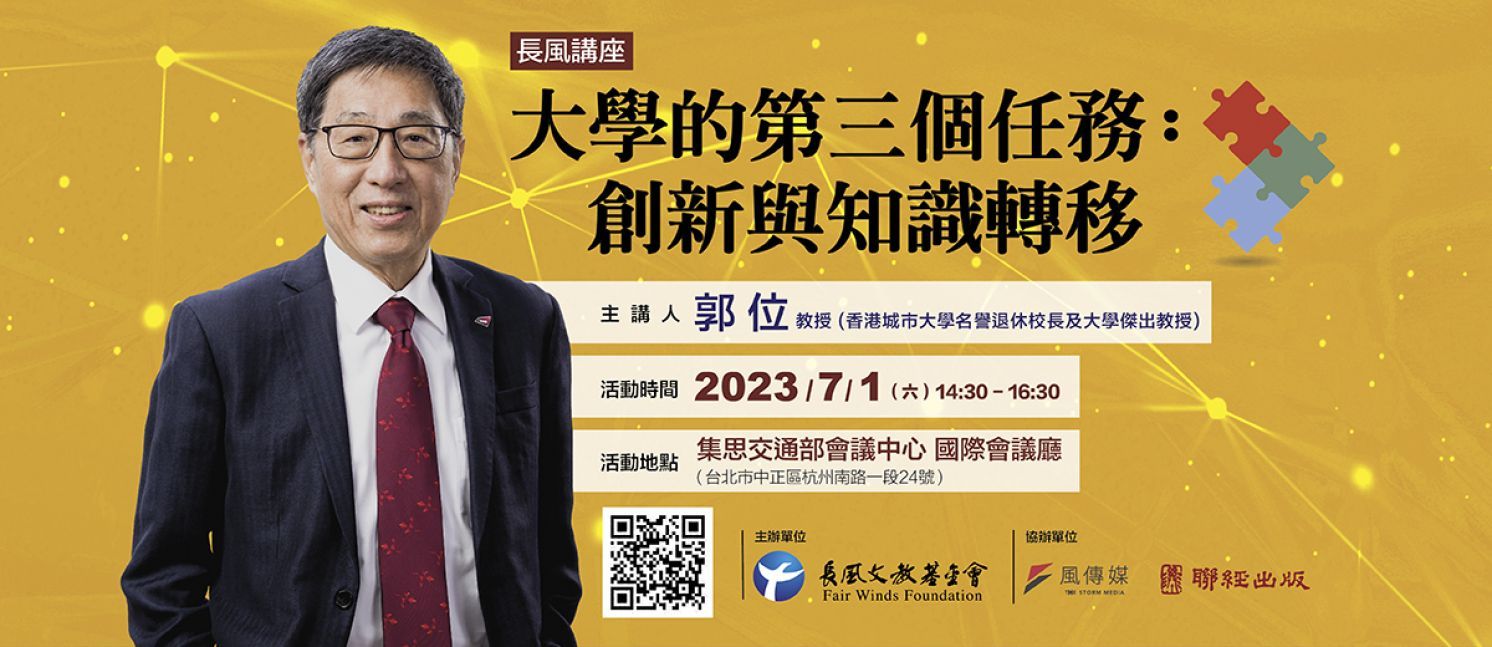
2023 The Third Mission of Universities: Innovation and Knowledge Transfer
Higher education in Taiwan, mainland China, and Hong Kong is currently facing serious difficulties: mainland China is investing heavily in key areas, but its policies are rigid; Taiwan’s elections are populist; and Hong Kong’s industrial structure is unbalanced, with civil servants in power. Without returning to professional leadership and taking seriously the importance of technological innovation in an era of dramatic change, it is impossible to produce first-class universities and unleash the power of knowledge to drive society.
Details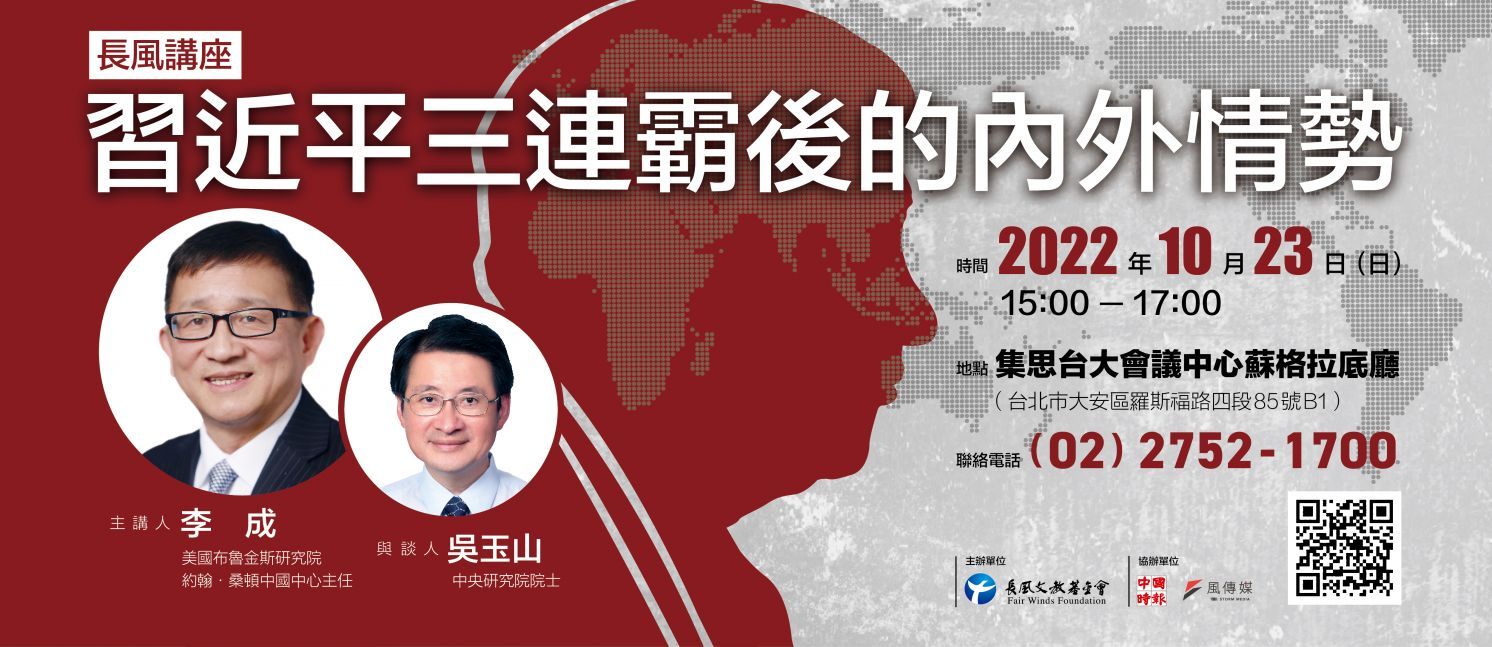
2022 Fair Winds Lecture: Domestic and International Situation after Xi Jinping’s Third Term
The Chinese Communist Party is about to hold its 20th National Congress, and Xi Jinping will become the first General Secretary and President in the history of the Chinese Communist Party to win three consecutive terms. With the establishment of Xi’s three consecutive terms, will China’s internal governance become more authoritarian?
Details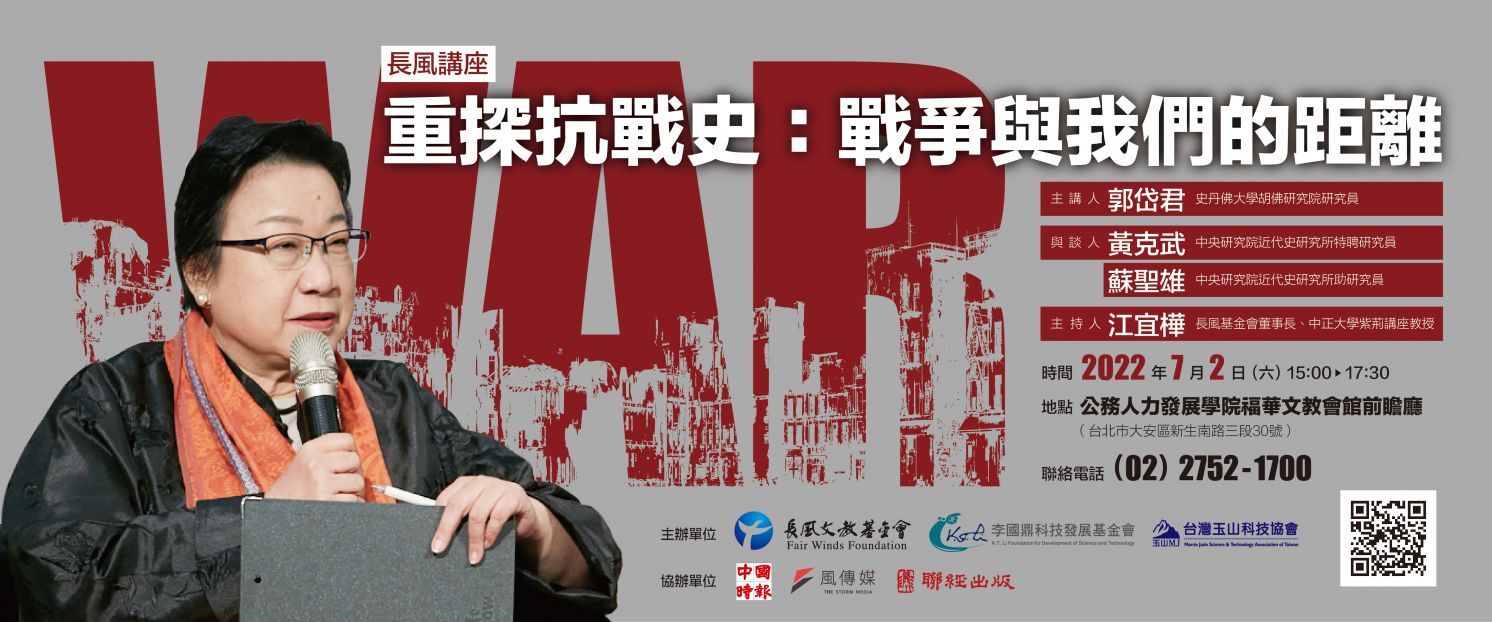
Revisiting the History of the Second Sino-Japanese War: The Distance between War and Us
The brutal war in Ukraine has once again made people realize the cruelty of war and the value of peace.
Details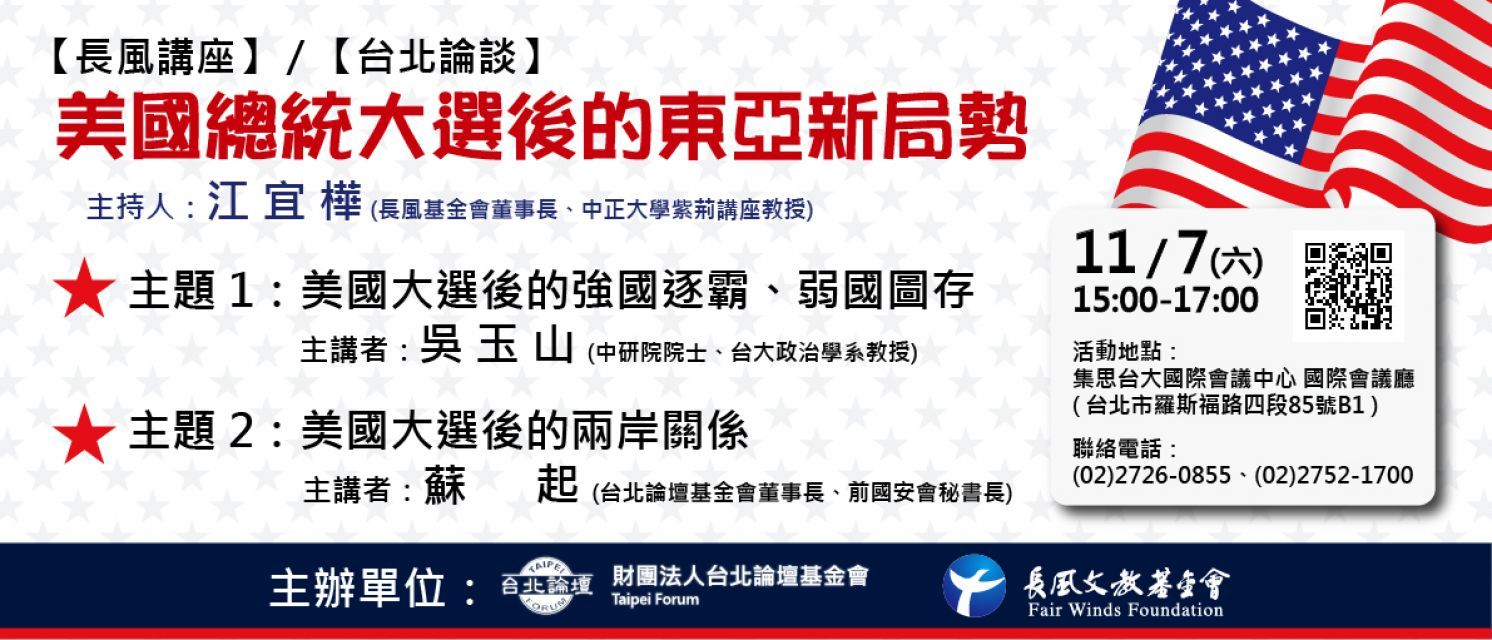
The New State of Affairs in East Asia After the U.S. Presidential Election
The 2020 United States presidential election is the most antagonistic, chaotic, and confusing election in the past century. No matter the outcome of the election, it will have a major impact on the United States itself and other countries in the world.
Details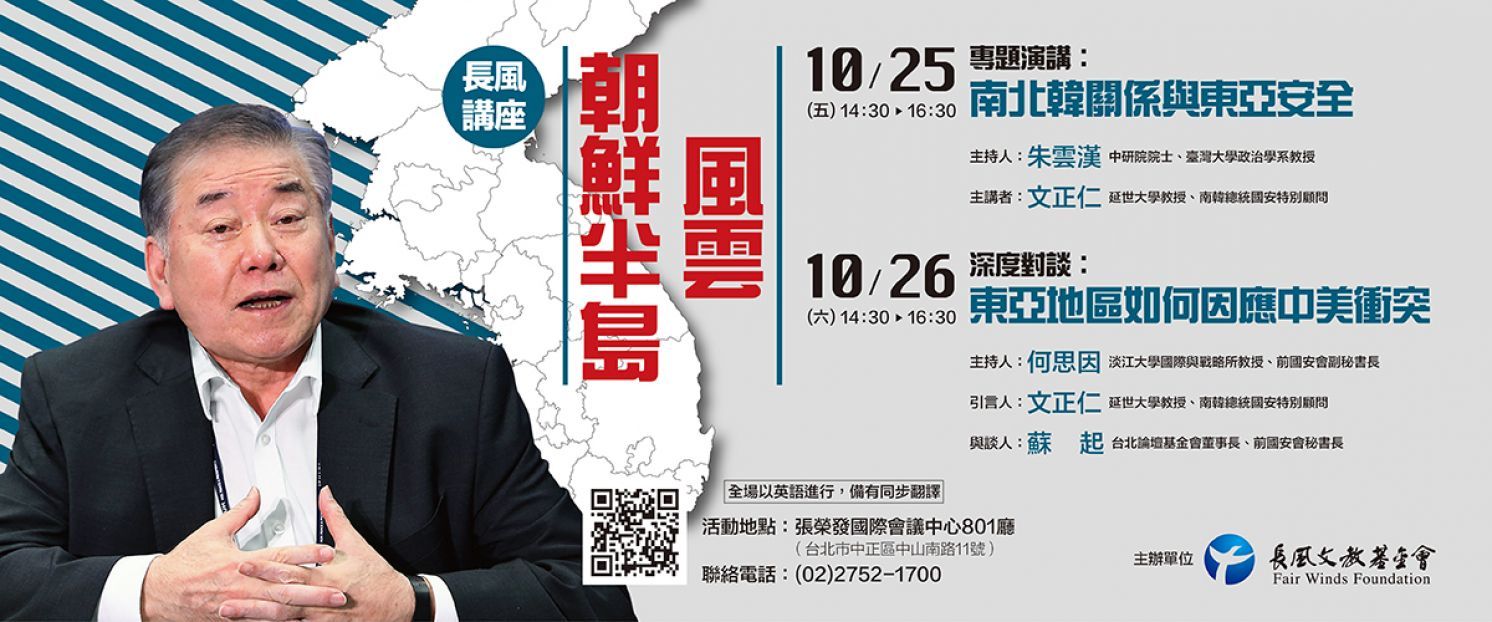
Clouds of Uncertainty Over the Korean Peninsula
In recent years, North Korea has actively developed nuclear weapons and launched missile tests, making the situation in Northeast Asia increasingly tense and prompting President Donald Trump of the United States and President Moon Jae-in of South Korea to meet with North Korean leader Kim Jong-un multiple times to avoid the threat of nuclear war in the region. On the other hand, at the time of the U.S.-China trade war, Japan and South Korea are also experiencing tensions over labor compensation and trade issues, shaking the strategic partnership between the United States, Japan, and South Korea. How should East Asian countries, including Taiwan, cope with U.S.-China competition and the increasingly complex geo-political situation?
Details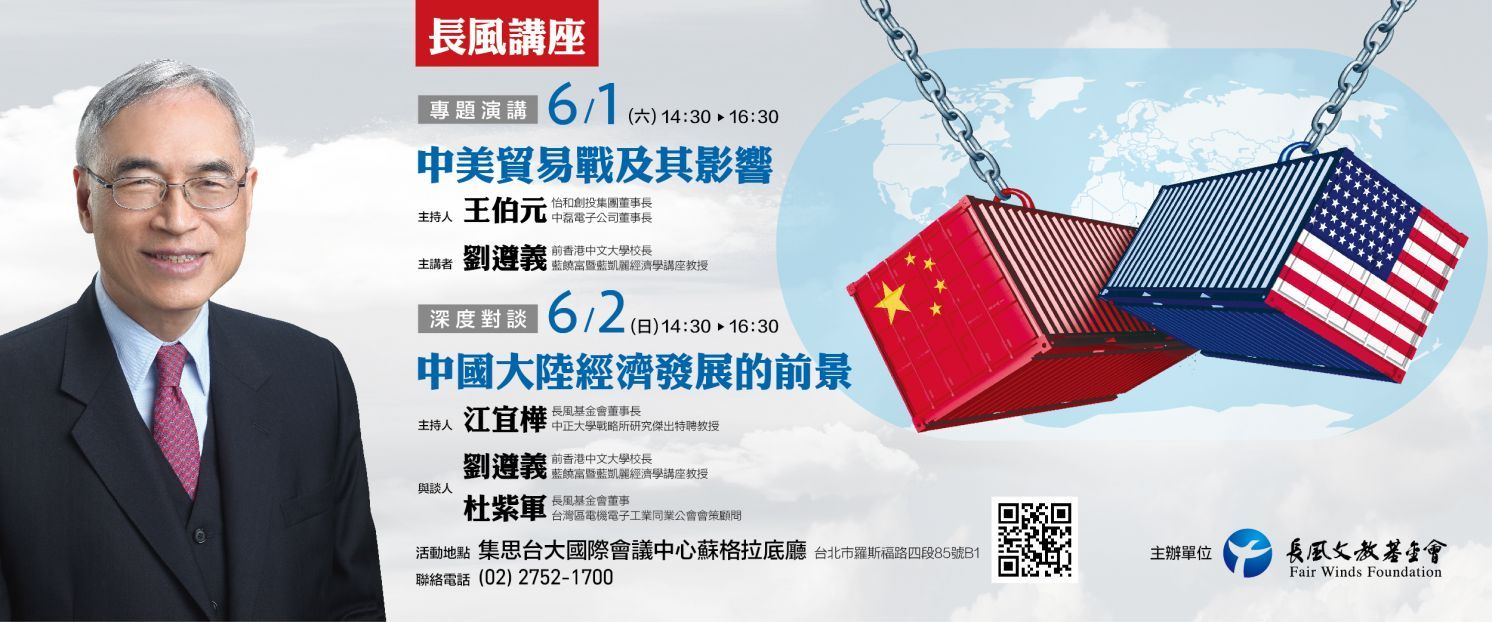
The U.S.-China Trade War and Its Impact
Since the trade war between China and the United States began 2018, its impact has been worldwide and especially prominent on the global economy. If the trade war persists, then global supply chains may be reorganized, and social and political problems may follow. Even if China and the United States were to reach a compromise on trade issues, it does not necessarily mean that the long-term competitive relationship between China and the United States can be eased. What are the key issues behind the U.S.-China trade conflict? What counter-measures should Taiwan adopt in the crack?
Details